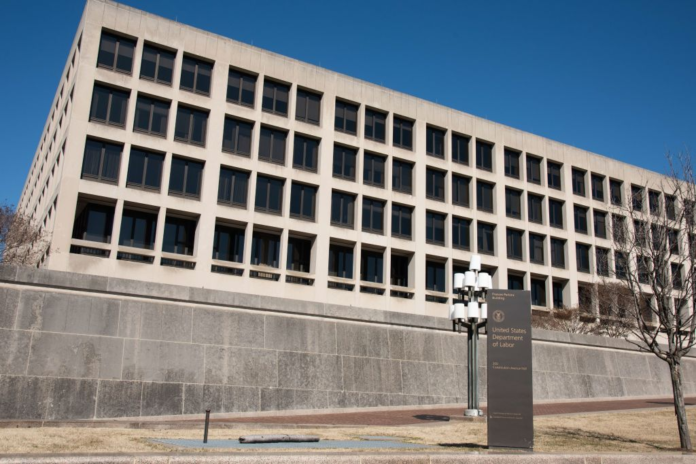The U.S. economy added 187,000 jobs in July, slightly less than expectations, while the unemployment rate dropped to 3.5%.
The job gains were on par with those in June. They are likely to give economists more hope that the labor market can withstand the Federal Reserve’s inflation-fighting interest rate hikes without a recession.
The Bureau of Labor Statistics said that the largest job gains were in health care, social assistance, financial activities and wholesale trade. Employment in motion picture and recording industries fell to 463,000, from 469,200 a month earlier. The WGA strike slowed production, and the SAG-AFTRA walkout in July largely brought it to a standstill. There also was a slight drop in jobs in broadcasting and content providers, to 351,300, from 351,800 a month earlier. The figures are seasonally adjusted. Jobs in publishing also fell, to 931,200, from 934,900.
On CNN, Acting Labor Secretary Julie Su was asked about her mediation of a strike at the Port of Los Angeles and why she has not stepped in to try to resolve the WGA and SAG-AFTRA strikes.
Su did not answer, but said that what is happening is, in a tight labor market, “some workers are going to strike if they are not getting what they need at the bargaining table. It’s all part of the process that the president believes in, and I do — collective bargaining, parties coming together to resolve issues, building strength and resilience in their industries for the long term, and some of that will include the ability of workers to strike.”
Mark Zandi, chief economist at Moody’s Analytics, wrote on Twitter/X, “The jobs report for July was down the middle of the fairway. Couldn’t have been much better. Job growth is strong, but moderating, consistent with the Federal Reserve’s efforts to quell inflation. Wage growth is still a bit hot for the Fed’s liking, but it continues to cool off.”
Average hourly earnings on private, nonfarm payrolls rose by 14 cents, or 0.4 percent, to $33.74. The average hourly earnings have rise by 4.4 percent over the past 12 months.
Jason Furman, professor at Harvard, wrote that the report was “mixed” when it comes to taming inflation: The rate of job growth is slowing, and the unemployment rate is “neutral,” but wage growth picked up.
The figures tend to be revised in future months. In fact, the robust job numbers for June and May were revised downward by 49,000 jobs. That means that job growth in June was 185,000, and in May it was 281,000.


